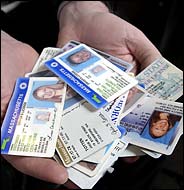Lawsuits Over Background Checks
Thursday, July 18th, 2013Last week, the Equal Employment Opportunity Commission (EEOC) filed lawsuits against Dollar General Corp and a BMW manufacturing plant over their use of employment screening. In each case, the EEOC claims that the criminal background checks used to screen applicants or terminate employees discriminated against African-Americans.
These are the first lawsuits that have been filed since the EEOC updated and clarified its background check guidelines last year. At that time, the agency warned employers that using overly broad criminal background checks that limit job opportunities for applicants with arrests and convictions on their records could set them up for discrimination charges.
While the EEOC clarified then that it was not prohibiting employers from obtaining criminal background checks on job applicants, it did want to “reduce barriers to employment” for those with criminal records who “have been held accountable and paid their dues.”
The agency is alleging that the BMW plant, in Spartanburg, SC ordered new background checks after a staffing company changed contractors. The previous contractor’s policy was not to hire anyone with a criminal conviction within the past seven years. But BMW fired anyone whose new background check revealed a criminal record for any year—and that totaled 88 employees, 70 of whom were African-American. Many of the terminated workers had been with BMW—through the contractor—for over a decade.
The EEOC claims this is a violation of the guidelines, as a “blanket exclusion” that does not take into account the nature or timing of the crime, or whether it relevant to the work performed by the employee.
BMW says it will defend itself against the allegations.
The EEOC’s case against Dollar General is a nationwide action, based on discrimination charges filed by two black applicants. One, who revealed a six-year-old conviction for possession of a controlled substance was offered employment, only to have the offer rescinded, based on Dollar General’s policy not to hire anyone with that type of conviction within 10 years.
The other applicant was rejected based on an erroneous report that she had a felony conviction. She notified Dollar General that the report was a mistake, but they did not reverse the decision, according to the EEOC.
The EEOC continues to urge employers to give applicants an opportunity to explain criminal convictions before they are rejected. It also recommends that employers stop asking about criminal convictions on job applications.
Employers, on the other hand, see criminal background checks as a way to gather as much information as possible about an applicant, so an informed hiring decision can be made. Regardless of skin color, employers have a right to know whether an applicant has a criminal record.










